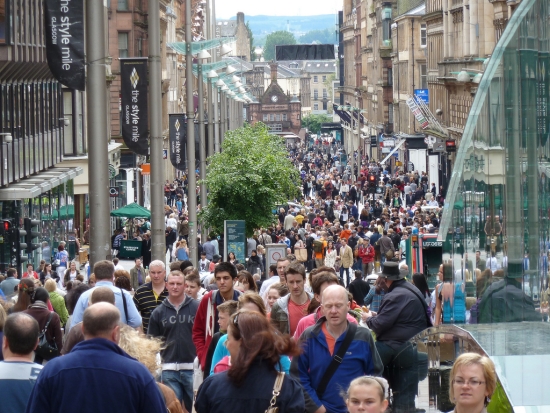Although the economy has largely picked up and allowed industries such as manufacturing and retail to flourish, certain regions of the UK have continued to underperform due to weaknesses in the local economy. Yet it appears that the final quarter of 2013 marked a turning point for the Scottish retail industry, with sales growth outperforming the British average during the period.

In the final quarter of the last year, the volume of retail sales in Scotland rose by 1.1 per cent on a quarter on quarter basis compared to a 0.8 increase in the UK as a whole. This means that, when taken on a year on year basis, retail sales volume rose by an impressive 4 per cent when compared to the final quarter of 2012.
As year on year retail sales volume for the UK rose by 3.7 per cent in the final quarter, Scotland is now managing to hold its own in the overall UK retail industry recovery.
Barclays’ Scottish corporate banking division relationship director, Euan Murray, welcomed the news, as it now means Scotland is once more a competitive force in the retail industry. For the most part, he attributed the improvement to a strengthening of the country’s labour market.
He said; “The figures will be welcomed by retailers and reflect the general rise in confidence throughout the rest of the UK.
“With unemployment in Scotland falling to its lowest level for almost five years for the three month period to November, we are seeing an increase in consumer spending.
“Looking ahead to 2014, we expect to see low levels of sustained growth and cautious optimism from retailers.”
Yet while this is certainly good news, there is some debate as to whether the figures accurately represent the situation in Scotland. This is because when sales growth is monitored with regards to value, rather than volume, the UK average was 0.3 per cent higher than the Scottish result on both a quarterly and year on year basis.
Furthermore, recent figures published by the Scottish Retail Consortium indicate that retail sales value actually fell by 1.1 per cent in December compared to results collated in December 2012. This marked the worst year on year performance since November 2012, excluding seasonal distortions last April due to the timing of Easter, and was described as a “small setback” by the industry body.
Considering that the value of UK sales as a whole rose by 1.8 per cent in December 2013 compared to the previous year, this could certainly prove to be a worrying setback indeed for Scottish retailers.
In all, it seems to be a rather mixed bag of results for Scottish retailers in December. Although volume of sales rose impressively, the lowering of value growth indicates that Scottish consumers are still placing greater stock on value rather than quality and actively seeking bargains wherever possible.
Small retailers, then, may wish to continue keeping prices as low as possible in order to see success in the early part of 2014.
Do you think the figures above accurately represent the mind set of Scottish consumers?
Previous Post
Leicester Square Hotel Scheme faces Opposition